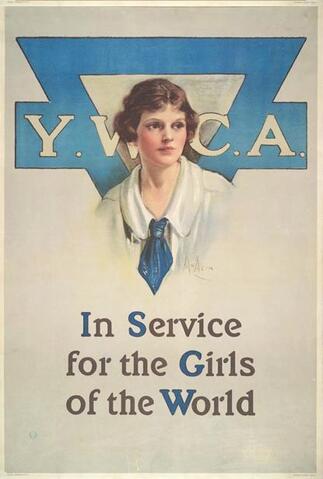
Identity area
Type of entity
Corporate body
Authorized form of name
Young Woman's Christian Association (YWCA)
Parallel form(s) of name
Standardized form(s) of name according to other rules
Other form(s) of name
- Y.W.C.A.
Identifiers for corporate bodies
Description area
Dates of existence
1894-present
History
In the early 1900s, Saskatchewan women sought to establish the YWCA, a well-known urban-based evangelical Protestant organization that aimed to uplift and protect young women, especially those moving into the rapidly growing cities. Over the decades, the YWCAs have changed considerably, adapting to shifts in societal needs and in notions of womanhood. The first provincial YWCA was founded in Moose Jaw (1907). The Regina and Saskatoon YWCAs were first established in 1910; that in Prince Albert in 1912. In Regina the Local Council of Women played an instrumental role. In Saskatoon, Christ Church Women's Auxiliary and the Golden West chapter of the IODE were involved, but of central importance was an individual woman of independent means: Millicent Silcox. A Church of England deaconess, she had already begun Travellers' Aid work, meeting trains and providing lodging to young women; she continued this work under YWCA auspices. All four YWCAs did extensive Travellers' Aid Work, but their prime objective was to provide respectable, affordable quarters for young women who were coming into the cities to work or study. Programs and services proliferated under the guidance of paid staff and volunteer workers, the most extensive being in Regina and Saskatoon. The Saskatoon YWCA, for example, developed educational programs including classes in domestic science, dress-making, Bible study, first aid, current events, and English-language training. Employment assistance was often provided. Clubs proliferated, as did social events like teas; in time, dancing was allowed. Physical activities were always encouraged, and extensive sports programs also developed; camping became popular.
The YWCAs continued their work through the social disruption of the two world wars, the economic devastation of the 1930s, and the challenges of the postwar decades. Programs and services constantly adapted to the changing needs of young women and the community. The YWCA, for example, responded to the need for support services to new Canadians, and in the late 1970s extended a helping hand to Vietnam refugees. As well, YWCAs have addressed social issues such as the needs of women with disabilities, and violence against women. In the early 1980s Regina and Saskatoon YWCAs began to offer annual Women of Distinction Awards, and Prince Albert began to do so in 1990. As of early 2005, Regina, Saskatoon, and Prince Albert still had YWCAs. In 2004 the combined YMCA/YWCA in Moose Jaw (which dated from 1954) became a YMCA Family Y.
Clara Bayliss, Lisa Dale-Burnett
The YWCA history dates back to 1855, when the philanthropist Lady Mary Jane Kinnaird founded the North London Home for nurses travelling to or from the Crimean War. The home addressed the needs of single women arriving from rural areas to join the industrial workforce in London, by offering housing, education and support with a "warm Christian atmosphere". Kinnaird's organisation merged with the Prayer Union started by evangelist Emma Robarts in 1877.
In 1884, the YWCA was restructured. Until then, London had had almost a separate organisation, but there was now one YWCA organisation. Beneath this there were separate staffs and Presidents for London, England and Wales, Scotland, Ireland, "Foreign" and Colonial and Missionary. This organisation distributed Christian texts and literature, but it also interviewed young women in an effort to improve living conditions. In 1884, they were working amongst Scottish fisherwomen, publishing their own magazine and operating a ladies' restaurant in London.
The World YWCA was founded in 1894, with USA, Great Britain, Norway and Sweden as its founding mothers.

